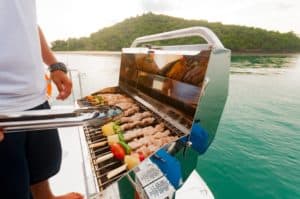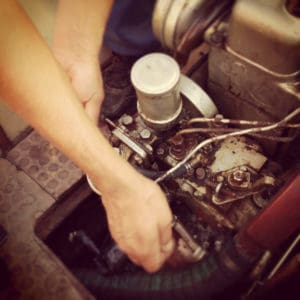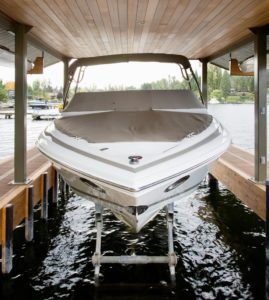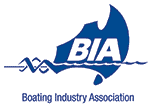There’s nothing like the feeling you get when you pull up to the marina on a Saturday morning with only thoughts of the open sea in your mind. This allure especially captivates us Australians and almost 1.5 million of us have a motorboat or a yacht.
But, as even a novice sailor knows, it’s not always plain sailing. Taking to the sea comes with all sorts of hazards; the weather, tides, and even traffic can bring about dangerous situations, but most important of all is the need to have your boat in shipshape.
Regular Maintenance Is Crucial
Often, people who own a boat don’t have a lot of free time to use it. However, as is the case with any vehicle, it’s important to use your boat regularly to maintain the engine is in good condition, just by taking it out once every two weeks instead of once a month will help it continue to run smoothly.
But, of course, regular maintenance isn’t only about going for a spin on the weekend, and it’s not just about polishing the bits people can see. It’s important to create a checklist that ensures all the vital functioning parts of the vessel are in good order. A good way to do this is to create a checklist with a certified dealer or a qualified marine mechanic.
Following these maintenance guidelines will get you off the dock and off to your favourite fishing spot or anchored in open water to watch the sunset with a loved one, but what are the top reasons why your boat might break down at sea, and how can you resolve the problems?
Running Out Of Fuel
It might seem obvious, but it’s surprising how often people get into trouble through not having enough fuel. It could be something as simple as having an inaccurate fuel gauge, losing track of time, or even forgetting to fuel up before leaving the dock. But the most common reason for people running out of fuel is that they don’t realise how much harder the engine has to work in strong headwinds or high waves.
The conditions play a significant role in fuel consumption, and it’s during the worst conditions you might find yourself caught short. It’s wise to allocate up to 40% of your fuel reserve to emergency conditions, that’s when you’ll need it most!
Engine Won’t Start
You’ve sipped a couple of glasses of wine with your loved one watching the sun dip from the sky, and it’s time to go home. The last thing you want to hear is the sound of silence when you turn the ignition key.
Usually, this is a problem with the battery, it’s either flat or there is a break in the circuit, but it could be as simple as a loose-fitting ignition mechanism. It’s a process of elimination, go through the system of fuses and wiring, replace any blown fuses or broken wires and inspect the terminals.
If none of this helps, the battery might simply be flat. Keeping to a thorough boat maintenance checklist should help you avoid this problem, but it might be good to have a charger or spare battery at hand.
Overheating Engine
A common cause of an overheating engine is a reduction of water intake due to blockages or split hoses. Inboard-powered boats are prone to blockages when filters get covered in marine life or debris, and setting off at low tide can draw mud into the impeller. Again, maintenance and good decisions can help avoid these situations.
As with inboard engines, outboard motors need a constant flow of water to keep them cool, and blockages caused by seaweed are a common issue. It’s important to shut down the engine and let it cool before trying to fix the problem. By continuing to run an overheating engine you risk the oil temperature rising so much that it is no longer effective and the engine seizes, or worse, explodes.
By letting the engine cool, cleaning any blockages to intakes, and checking the hoses, you should be set to go.
Losing Power
We all know the intuitive connection we feel between the power of the engine and our hands on the throttle. When you don’t get that surge of power, you know something’s wrong.
Thankfully, this is usually a minor problem and easily fixed.
A fuel filter can easily become blocked by debris, especially if the motor has been unused for a while without a full tank. It’s a good idea to carry spare filters, but if you don’t have any, even removing debris from the filter by hand can help solve this problem. Don’t forget to vent the engine box before starting the engine again.
On many outboards, the culprit might simply be the spark plugs. Make sure you have some spares.
Entangled Or Damaged Propeller
You know the moment you have a problem with your propeller. Even a slight nick can reverberate through the boat, instantly telling you there’s an issue. More often than not, it’s a snagged line that, after a great deal of effort, can be removed allowing you to get on our way.
But sometimes a reef or debris can damage the prop blades themselves. Of course, the best solution would be to be prepared with a spare prop, but short of that, you need to return to shore immediately, using the least power necessary to prevent further damage.
Be Prepared
Sometimes, the solitude and time for reflection we gain from being on our boats helps us put all life’s problems behind us and enjoy the moment. But there are inherent risks to being at sea. The best way to avoid breaking down when it matters is by getting to know the mechanics involved through regular maintenance, having the spares at hand, and the right tools. A proper marine toolkit is a must for any would-be mariner, and the knowledge you’ll gain from regular maintenance will make sure you’re up to the challenge, no matter what it is.
We Offer Professional Service And Support For All Your Boating Needs
There is a lot to consider when it comes to keeping your boat in top shape and performing well. Whether you want advice about the best hardware to suit your needs or simply a safe berth to rest your vessel, you can trust us at Corleone Marinas to be on your side!
Located in some of Sydney Harbour’s most prestigious sites from Elizabeth Bay to Long Island (and more!), we offer the full range of marina services, including shipwrights and mechanics with years of experience in the trade. Contact us today for all your marina needs!









